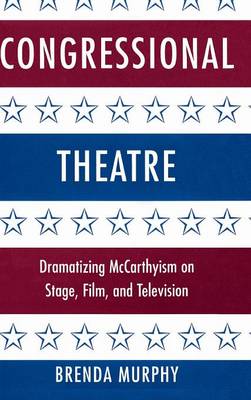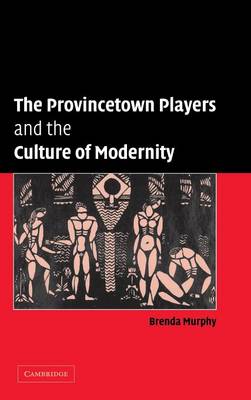Cambridge Studies in American Theatre and Drama
2 total works
Congressional Theatre is the first book to identify and examine the significant body of plays, films, and teleplays that responded to the actions of the House Committee on Un-American Activities during the 'show business hearings' it held between 1947 and 1960. Brenda Murphy discusses the dramatization in the works of HUAC's effects on American life and the political, social, and moral issues that its actions raised for American citizens. Among the writers discussed are Arthur Miller, Bertolt Brecht, Lillian Hellman, Maxwell Anderson, Elia Kazan, Barrie Stavis, Herman Wouk, Eric Bentley, Saul Levitt, Budd Schulberg, Carl Foreman, Abraham Polonsky, and Walter Bernstein.
The Provincetown Players was a major cultural institution in Greenwich Village from 1916 to 1922, when American Modernism was conceived and developed. This study considers the group's vital role, and its wider significance in twentieth-century American culture. Describing the varied and often contentious response to modernity among the Players, Murphy reveals the central contribution of the group of poets around Alfred Kreymborg's Others magazine, including William Carlos Williams, Wallace Stevens, Mina Loy and Djuna Barnes, and such modernist artists as Marguerite and William Zorach, Charles Demuth and Bror Nordfeldt, to the Players' developing modernist aesthetics. The impact of their modernist art and ideas on such central Provincetown figures as Eugene O'Neill, Susan Glaspell, and Edna St Vincent Millay and a second generation of artists, such as e. e. cummings and Edmund Wilson, who wrote plays for the Provincetown Playhouse, is evident in Murphy's close analysis of over thirty plays.

